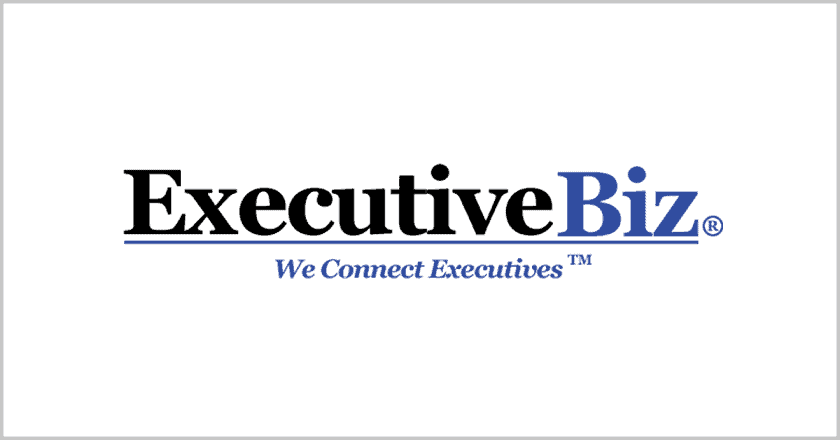
Mark Scallion leads the federal civilian business as a vice president for SAP Public Services, a subsidiary of the global technology services conglomerate that focuses on work with government agencies in areas such as electronic government and shared services.
A two-decade industry veteran, Scallion led SAP Public Services’ Defense Department organization for three years prior to his current role and joined the subsidiary in 2010 after a 10-year career in the former BusinessObjects government business.
Scallion recently spoke to ExecutiveBiz for this in-depth conversation on how view of the civilian market’s current shape and outlook for industry at-large, prospects for e-government initiatives at agencies and how SAP Public Services seeks to help “re-imagine” public sector information technology systems.
ExecutiveBiz: What two aspects of the business have taken up most of your attention this year?
Mark Scallion: SAP has broadened our value proposition in the federal marketplace. Historically, we were considered for department-wide transformation initiatives. Today, agencies can start leveraging SAP capabilities incrementally and see value in 6-9 months.
Of note, the largest part of our business this year in federal civilian agencies is our analytics and big data portfolio. SAP is working with many federal programs to deliver improved analytics that help them be more agile and responsive to their key stakeholders in performance of their agency mission.
More than ever, agencies are looking to SAP to help them bring together transactional, analytic, and unstructured data in a single, scalable platform.
We are also engaging with agencies to help them re-platform and extend business processes through a digital core for improved interaction and transparency for a government and its constituents. Our in-memory computing platform SAP HANA is the key foundation that enables digital businesses to provide a flexible, secure, real-time innovation environment.
ExecutiveBiz: How would you describe the federal civilian market’s overall picture for industry?
Mark Scallion: The cost of maintaining legacy systems has reached an all-time high in the federal sector. Yet, the pressure is increasing to overcome complexity, improve collaboration and deliver desired outcomes despite reduced budgets. As such, there is pent up demand for agile business transformation initiatives.
Fortunately, we’re seeing a renewed interest in leveraging commercial best practices and leading technologies across the federal government to ignite innovation. SAP helps agencies execute on their digital business strategy while leveraging key technology pillars like secure cloud computing, big data and analytics, the Internet of Things, mobile computing and digitizing an end-to-end constituent experience.
ExecutiveBiz: Which areas do you believe present SAP Public Services’ best opportunities for market success?
Mark Scallion: SAP has never been in a better position than we are today to help agencies modernize and re-imagine their IT system landscape to help create the best possible outcome for their stakeholders.
Helping both leading commercial companies and government agencies “run live†by uniting structured data and unstructured data enables governments to move from reporting the past to responding, learning, adapting, anticipating and innovating in the moment.
Federal agencies are committed to working together to leverage shared services for finance, HR, procurement, and grants. This represents a great opportunity for SAP to help facilitate the sharing of government infrastructure, resources, services, and systems to drive efficiencies and cost savings across large government enterprises.
Delivering SAP capabilities through a secure cloud environment is also enabling innovation and agility for federal transformation initiatives while driving growth opportunities for us.
ExecutiveBiz: What bookings from the year did you want to highlight for us?
Mark Scallion: As part of enhancing their talent management and workforce engagement strategies, four separate federal agencies selected SAP SuccessFactors, provider of cloud-based human capital management software, in the federal cloud over the past few months. Many other agencies are likely to soon follow as they look to modernize their legacy HR systems in a secure cloud environment.
On the agile data management front, we recently helped both a law enforcement agency and a cabinet level agency modernize their respective mission critical analytics as they migrate to the cloud. In-memory computing with SAP HANA is providing breakthrough speed improvements while allowing critical government processes and analytics to run in real-time with neither data replication nor batch programs.
ExecutiveBiz: Where do you see agencies taking their electronic government initiatives next year?
Mark Scallion: E-government has been around in federal government for many years. It was initially intended to automate paper-based processes, putting forms on the Web to use or fill out electronically. Digital transformation is shifting that paradigm. To govern in a digital society, agencies need to fundamentally reimagine and transform their operational models and processes to make decisions and execute transactions in the moment of opportunity.
I predict agencies will start to bring together both transactional business processes and analytical business intelligence. By tying together all agency sources of knowledge on one common platform, decisions can be made based on facts and predictive insights.
Savings from optimized processes and reduced maintenance of legacy systems can then be leveraged to engage citizens in innovative ways and engage with other parts of the government organization more effectively.
A digital platform will also enable agencies to be more agile and responsive, incrementally adding connected solutions to address new problems—without disrupting operations.



